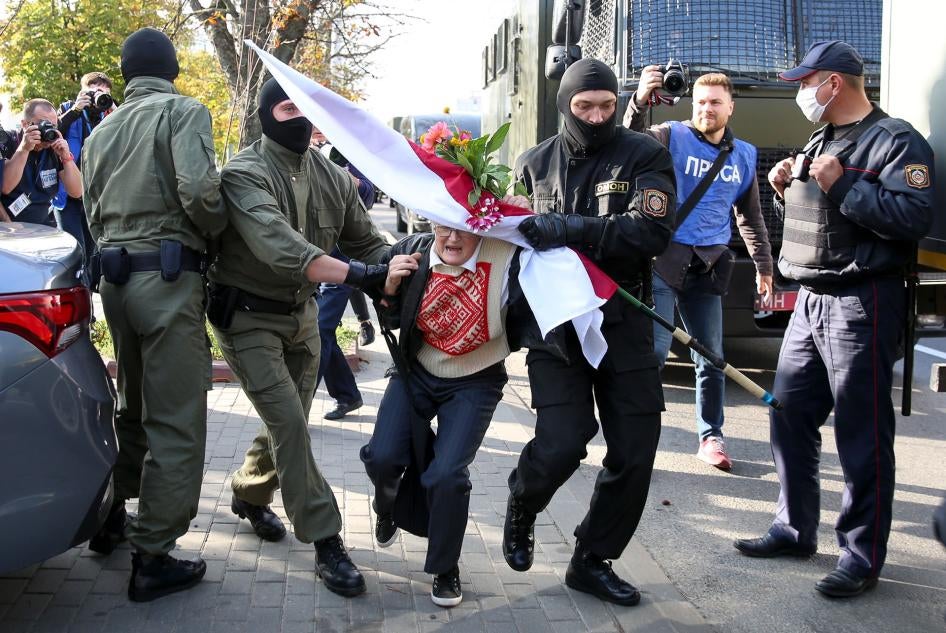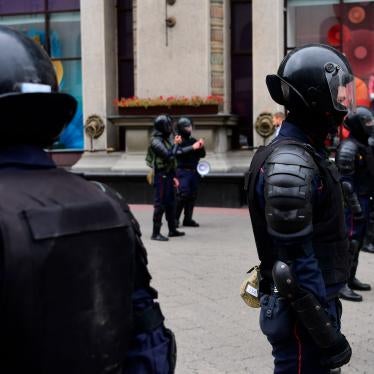Police abuse of peaceful protesters and passers-by in Belarus is continuing, as are protests over disputed presidential elections and police brutality.
On September 12, a 21-year-old student from Minsk was scrolling on his phone when masked officers in green uniform detained him, breaking his nose and throwing him into a minivan with no number plates. Five officers in the vehicle beat him, demanded the password for his phone, and threatened to rape him with a truncheon while pulling his shorts down.
The next day, another young man, Evgeny, was detained during a peaceful protest in Minsk. Riot police took him and other detainees to Frunzensky precinct. Evgeny was second-to-last to step out of the van into the courtyard. He heard the police shout abuse and beat the last person inside the van. An officer asked Evgeny whether he wanted to get back in the vehicle for a similar “conversation.” Evgeny said he recently underwent surgery. The officer told him to show the stitches and punched him on the stitched incision as soon as he lowered his trousers. The precinct staff had to call Evgeny an ambulance.
These are only two of the many alleged beatings and ill-treatment by police in mid-September, as detentions of peaceful protestors again began to rise. This past Sunday, police arbitrarily detained 400 participants in the Women’s March in Minsk.
Some of those who filed complaints about police torture in August have already received letters from the authorities, saying that investigators saw no grounds for launching criminal proceedings. High-level officials vehemently deny well-documented abuse, and a crackdown on local activists who provide legal aid and other assistance to victims of police brutality is underway.
On September 17, member states of the Organization for Security and Cooperation in Europe (OSCE) invoked the Moscow Mechanism, establishing an independent expert mission to investigate alleged abuses in Belarus. The next day, the United Nations Human Rights Council adopted a resolution to tackle the human rights crisis in Belarus, urging the authorities to fulfil their obligations under international human rights law and setting in motion close monitoring of the situation by the UN’s Human Rights Commissioner.
Heightened international scrutiny of Belarus is vital to discourage the authorities from further abuses and help victims in their quest for justice.









